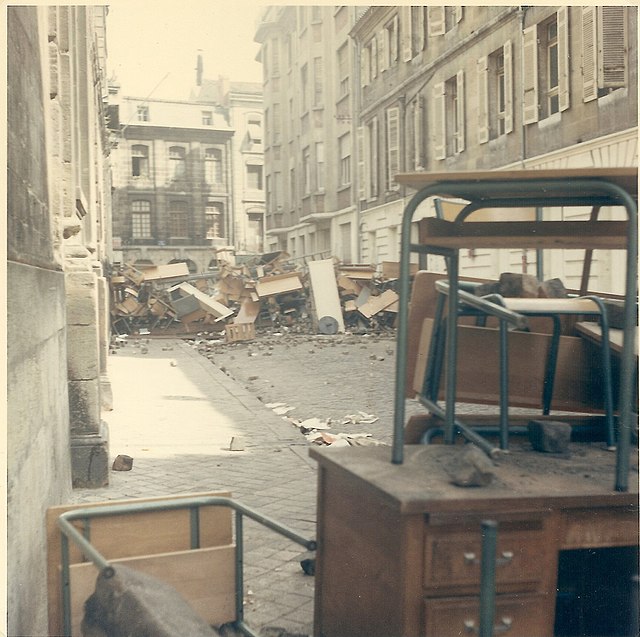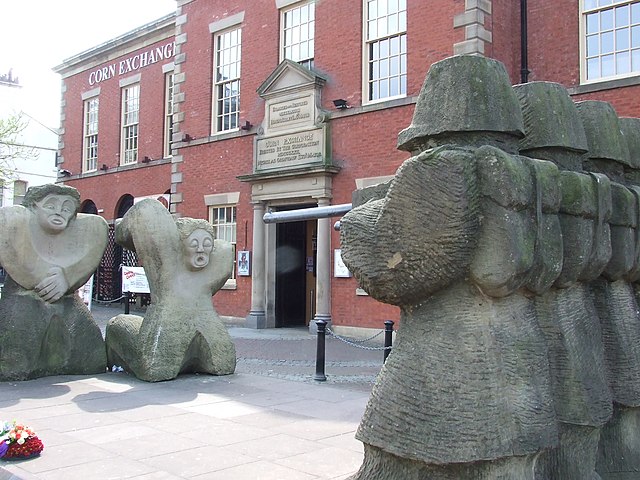Beginning in May 1968, a period of civil unrest occurred throughout France, lasting seven weeks and punctuated by demonstrations, general strikes, and the occupation of universities and factories. At the height of events, which have since become known as May 68, the economy of France came to a halt. The protests reached a point that made political leaders fear civil war or revolution; the national government briefly ceased to function after President Charles de Gaulle secretly fled France to West Germany on the 29th. The protests are sometimes linked to similar movements around the same time worldwide that inspired a generation of protest art in the form of songs, imaginative graffiti, posters, and slogans.
Barricades in Bordeaux in May 1968
Public square of the Sorbonne, in the Latin Quarter of Paris
Graffiti in a classroom
Graffiti on the school of law, "Vive de Gaulle" (Long live De Gaulle) with, at left, the word "A bas" (down with) written across "Vive"
A general strike is a strike action in which participants cease all economic activity, such as working, to strengthen the bargaining position of a trade union or achieve a common social or political goal. They are organised by large coalitions of political, social, and labour organizations and may also include rallies, marches, boycotts, civil disobedience, non-payment of taxes, and other forms of direct or indirect action. Additionally, general strikes might exclude care workers, such as teachers, doctors, and nurses.
Constantin François de Chassebœuf, whose early conception of the general strike lay the groundwork for its systematic formulation in the 19th century
William Benbow pictured in Punch in 1848
Statue commemorating the 1842 general strike
Mikhail Bakunin, leader of the anti-authoritarian faction of First International, which advocated for a revolutionary general strike to overthrow the state and capitalism








